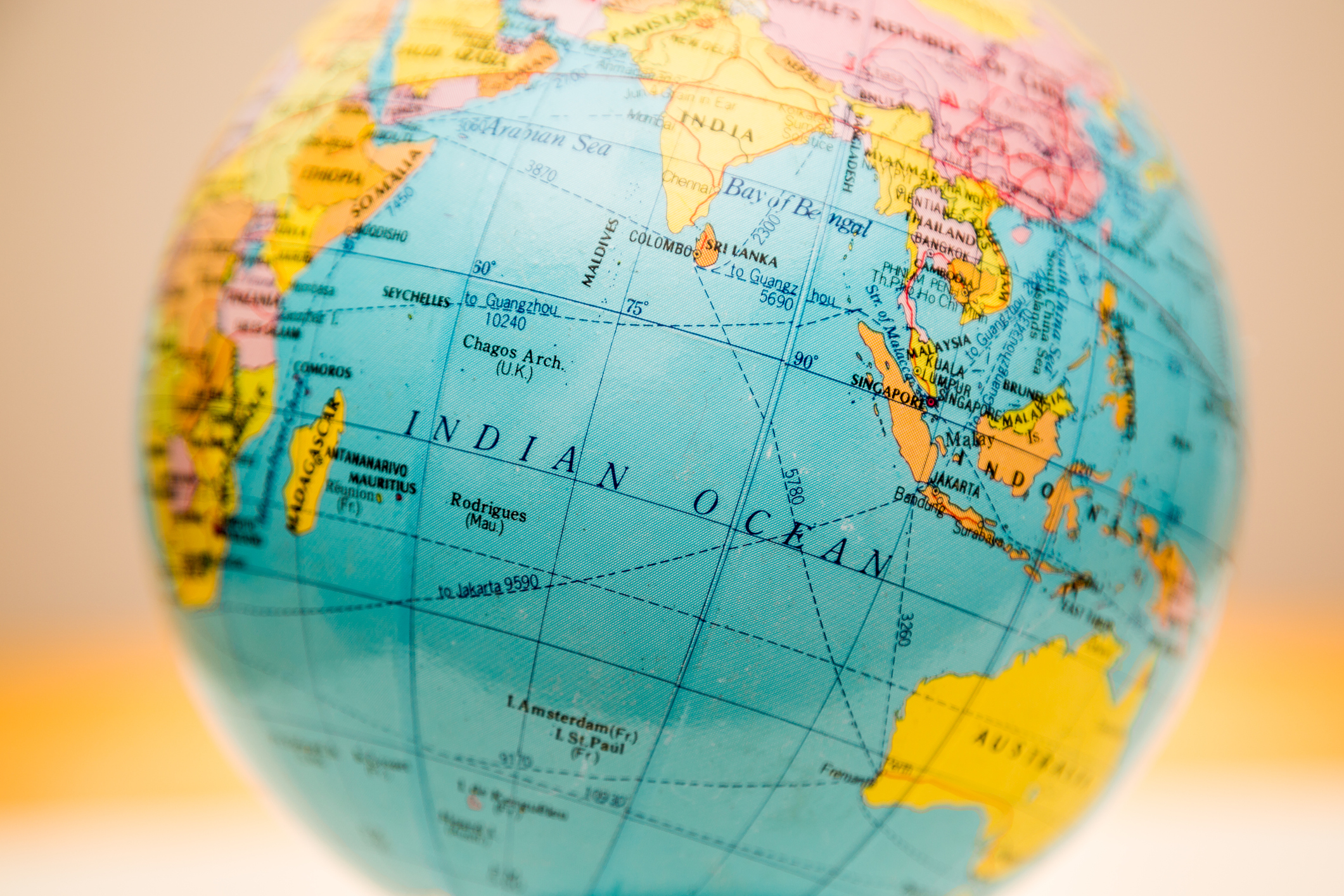The remnants of an ancient ocean could be causing a 'gravity hole' in the Indian Ocean


A free daily email with the biggest news stories of the day – and the best features from TheWeek.com
You are now subscribed
Your newsletter sign-up was successful
A so-called "gravity hole" in the Indian Ocean, where the gravitational pull is weaker than other places on Earth, could be the result of magma plumes from deep within the planet, scientists recently discovered, according to findings published in the journal Geophysical Research Letters. Researchers were previously unsure as to why the phenomenon existed.
"The Earth is basically a lumpy potato" and not a sphere, study coauthor Attreyee Ghosh told CNN. Therefore, gravity is distributed unevenly around the planet. "If you pour water on the surface of the Earth, the level that the water takes is called a geoid," determined by density differences under the surface of the Earth. The "gravity hole" in the Indian Ocean is the "biggest low" in the geoid, Ghosh continued.
In order to explain the anomaly, researchers used computer models to study plate tectonics and determine how the region formed historically. They found that the gravity discrepancy goes back to the "separation of Gondwana, the supercontinent at the origin of Africa, Australia and India," Insider explained. "As India separated from Africa and smashed into the European plate, the ocean that used to be there, called Tethys, was split apart and squished between the continental plates." The shifting of the continents over time eliminated the Tethys Ocean, and the oceanic plate began to sink deeper into the Earth, causing lower gravity. The movement has also slowly melted the Earth's mantle, releasing plumes of magma, similar to how volcanoes form.
The Week
Escape your echo chamber. Get the facts behind the news, plus analysis from multiple perspectives.

Sign up for The Week's Free Newsletters
From our morning news briefing to a weekly Good News Newsletter, get the best of The Week delivered directly to your inbox.
From our morning news briefing to a weekly Good News Newsletter, get the best of The Week delivered directly to your inbox.
As of now, researchers are not certain whether the gravity hole will remain or whether it will disappear in the future. Further research is also required to confirm the existence of the plumes, Himangshu Paul, a scientist at the National Geophysical Research Institute in India, told New Scientist.
A free daily email with the biggest news stories of the day – and the best features from TheWeek.com
Devika Rao has worked as a staff writer at The Week since 2022, covering science, the environment, climate and business. She previously worked as a policy associate for a nonprofit organization advocating for environmental action from a business perspective.
-
 Trump touts pledges at 1st Board of Peace meeting
Trump touts pledges at 1st Board of Peace meetingSpeed Read At the inaugural meeting, the president announced nine countries have agreed to pledge a combined $7 billion for a Gaza relief package
-
 Britain’s ex-Prince Andrew arrested over Epstein ties
Britain’s ex-Prince Andrew arrested over Epstein tiesSpeed Read The younger brother of King Charles III has not yet been charged
-
 Political cartoons for February 20
Political cartoons for February 20Cartoons Friday’s political cartoons include just the ice, winter games, and more
-
 Blue Origin launches Mars probes in NASA debut
Blue Origin launches Mars probes in NASA debutSpeed Read The New Glenn rocket is carrying small twin spacecraft toward Mars as part of NASA’s Escapade mission
-
 Dinosaurs were thriving before asteroid, study finds
Dinosaurs were thriving before asteroid, study findsSpeed Read The dinosaurs would not have gone extinct if not for the asteroid
-
 Canyons under the Antarctic have deep impacts
Canyons under the Antarctic have deep impactsUnder the radar Submarine canyons could be affecting the climate more than previously thought
-
 SpaceX breaks Starship losing streak in 10th test
SpaceX breaks Starship losing streak in 10th testspeed read The Starship rocket's test flight was largely successful, deploying eight dummy satellites during its hour in space
-
 Rabbits with 'horns' sighted across Colorado
Rabbits with 'horns' sighted across Coloradospeed read These creatures are infected with the 'mostly harmless' Shope papilloma virus
-
 Lithium shows promise in Alzheimer's study
Lithium shows promise in Alzheimer's studySpeed Read Potential new treatments could use small amounts of the common metal
-
 Scientists discover cause of massive sea star die-off
Scientists discover cause of massive sea star die-offSpeed Read A bacteria related to cholera has been found responsible for the deaths of more than 5 billion sea stars
-
 'Thriving' ecosystem found 30,000 feet undersea
'Thriving' ecosystem found 30,000 feet underseaSpeed Read Researchers discovered communities of creatures living in frigid, pitch-black waters under high pressure
